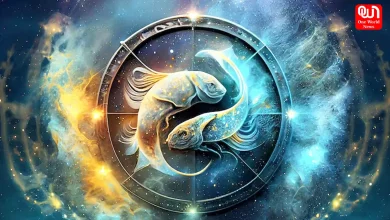The grief of a relationship: The therapist explains the types
Explore the intricate facets of grief relationships, from confronting the eerie Stranger Syndrome to navigating shattered dreams and identity shifts.

When a relationship transforms, the grief it brings is multifaceted. The anguish of saying goodbye to what once was or what could have been is a complex emotional journey. One distinct form of this grief is the Stranger Syndrome, an overwhelming struggle to reconcile the fact that a person who was once intimately entwined in your life has become a stranger.
Mature adults find themselves at odds when their confidence alters and turns into an unfamiliar face as they are compelled to come to terms with a considerable loss. It can be paralysing emotionally at times because people who were close and knew about everything in your life become unknown at some point. This is familiar terrain for them now but it’s unfamiliar territory on the part of the parents whose children are involved; therefore, it’s not easy to understand or process these drastic changes.

Unfulfilled Expectations: Coming to terms with the reverberations of dreams not realized.
Relations usually rely on assumptions, whether verbal or implied. In this way, we construct elaborate stories about tomorrow, in which we dream our lives together in common. The post-relationship phase entails lingering expectations that have not been met. What could have been is now but an echo; the dreams we held so dear once upon a time only linger as poignant echoes.
Unfulfilled expectations cast an oppressive shadow over the land of our memories; each expectation is loaded with the tangible weight of emotional baggage. The grief experience also includes learning how to cope with the difference between real life and what they dreamed about.
Read more: Little-known 7 expert tips to fortify your Winter skincare barrier against the cold
The breakdown of intimate bonding which is one of the hardest parts of the relationship grief, can be extremely painful for individuals. Shared strong ties in the past become shards from times long gone by, forcing people to face a gap they somehow cannot overcome.
Dealing with the fact that the person with whom you closely shared everything in your life, is now just a remote memory, demands the ability to think with yourself and some heart sturdiness. A trip across such an abyss means coming to terms with the emptiness created out of missed moments together and finding a way back to individuality in the echoes of what one was.
Isolation in the Wake of Departure: Confronting Loneliness and the Void
It is natural and expected for one to feel alone when they experience the vacuum created by the departure of a major fellow. It is not simply the loss of their bodies, which are physically present with them. Rather, it is a matter of dealing with the void they leave in our emotions.
This kind of sudden solitude may be quite heavy for the individual to handle promptly, pushing them to find something to fill in the gap. Adjusting to life bereft of someone’s presence and trying to learn how to cope with the loneliness should be part of the healing process and requires self-examination as well as the search for other ways of establishing contact with others.
Read more: Could your sleep patterns be impacting your fertility? Ultimate 6 tips to improve your sleep quality
Shared dreams and aspirations are closely linked to relationships. It is associated with the breaking down of shared ideals, hopes and aspirations within a relationship. In other words, confronting the loss of shared futures means a re-assessment of one’s vision of the future, and coming to another way again.
The problem lies in bringing together the difference between those things that were loved like a dream before and what is true at present. The process of healing has to go through navigating through the shattered dreams’ debris and creating a new narrative for oneself.
We’re now on WhatsApp. Click to join.
Identity in Flux: Separating tremors, especially after parenthood.
Separation can be a very serious identity issue, especially if the child is involved since it brings huge upheaval in one’s life.& The family structure changes dramatically and people get puzzled as to how they define themselves without being part of that relation.
However, this is the complex part where reconstructing one’s identity and coming out of the shadows of marriage. Such an unforgettable change prompts us to go deep inside and search ourselves within. It requires us to be dy to start something new.
The nature of relationships and loss can never be fully comprehended and described without considering its multifaceted emotional components. Each individual’s journey is unique, but recognizing and navigating these various types of grief can be a guiding light in the process of healing and self-discovery.
Like this post?
Register at One World News to never miss out on videos, celeb interviews, and best reads.









